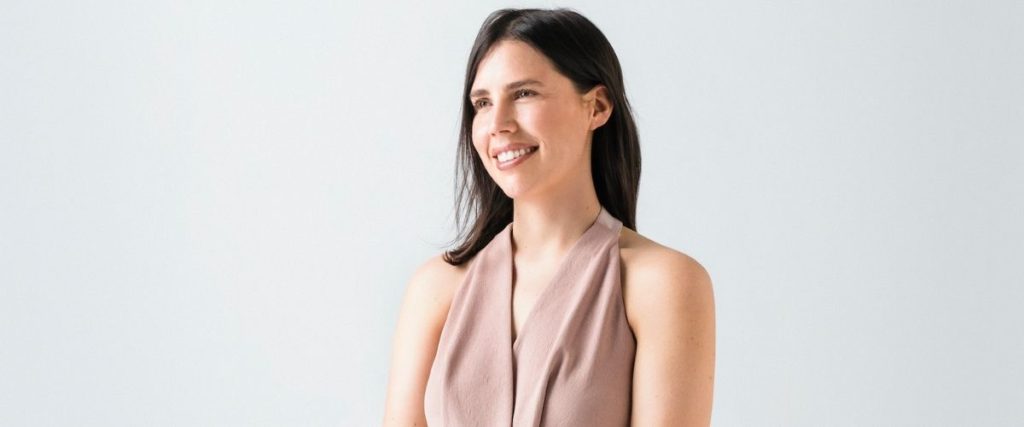Anna Ross is the founder and CEO of Kester Black, ethical, vegan, and animal cruelty-free brand well loved globally for their vegan nail polish. We caught up with Anna following the brand’s seven year anniversary and learned more about Anna’s inspiration, entrepreneurial journey, and how she is leading the sustainable beauty industry.
New Zealand-born Anna Ross was 18 when she founded Kester Black in 2009. Kester Black is a clean, ethical, forward-thinking beauty brand producing products that are as good for your karma as your cuticles, lips and face. Anna started her sustainable beauty brand while at fashion school in Melbourne, eventually developing the formula to Kester Black’s trademark vegan nail polish. The company has seen expansive success since its conception, and as the first beauty brand in the world to be B Corp certified, Kester Black is paving the way for businesses in the beauty industry globally.
In celebration of the brand’s seventh birthday, we speak to Anna about everything sustainable beauty, her advice for businesses looking to go green, and what to expect from Kester Black’s shining future.
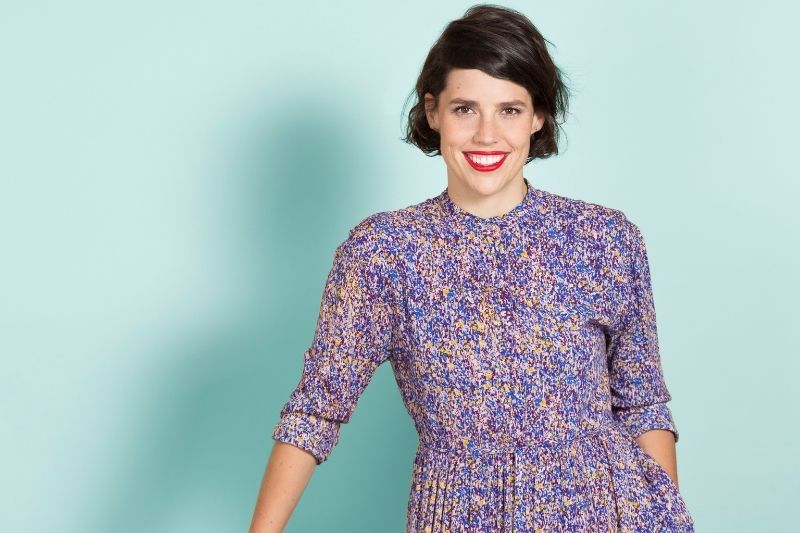
How did you start Kester Black?
I had just graduated from high school in 2008 and moved to Melbourne from New Zealand. I started making jewellery there so the first iteration of Kester Black was a jewellery label. I had gotten bored of working with sterling silver and wanted to learn how to colour it. I knew that you could do that with enamel paint, so I actually bought nail polish and tried painting some jewellery with the nail polish.
Kester Black launched in August 2012 with six nail polish colours. Three of the original six are still available: Paradise Punch, Buttercream, and Bubblegum. Our high performing cosmetics are made in the same places that luxury cosmetics are, and our manufacturer makes Tom Ford, Chanel, and Burberry. When we started, there were very few ethical options on the market, so the first thing that we did was put our ingredients list online because in the cosmetics industry back in 2012 that was not done. Then we started to get accreditation: Choose Cruelty Free, The Vegan Society, and a B Corp certification- and we were the first cosmetics company in the world to get the B Corp certification.
Was it difficult creating a sustainable beauty brand when markets may be more favourable towards more affordable alternatives?
It’s always about the price for a certain percentage of the market, for other parts of the market it’s about premium positioning, and for all, it’s quality. When I started there weren’t many sustainable brands, especially cosmetics, but because we were sustainable we got a lot of support from the start, and it’s the reason why Kester Black is really successful.
When you think of sustainable products you think of brown boxes and brown packaging, and products that don’t actually work. So I wanted to create a sustainable brand that nobody knew was sustainable, a high-end brand with a sustainable ethos. Because eco magazines were so bored of printing pictures of the same brown packaging when we launched it was really easy because we got featured in every single magazine in Australia and New Zealand so it was not hard to grow brand awareness back then.
What challenges did you face creating Kester Black, and how did you overcome them?
When we launched we were picked up by Liberty London and we were in all of the major department stores in Germany. And when we were in Liberty, I didn’t know about global compliance or freight logistics. Nail polish is considered a dangerous good when it comes to shipping them internationally, you have to have a dangerous goods licence.
Luckily somebody had told me about compliance and we started making labels that were compliant in other markets, but even last year we got removed from the shelves at Liberty, but only for 30 days. I had heard about another brand that had the same distributor as us in Germany, and they had to do an entire product recall to relabel all of their products, so compliance and shipping just really complicates everything, and everything else in comparison to those two is easy.
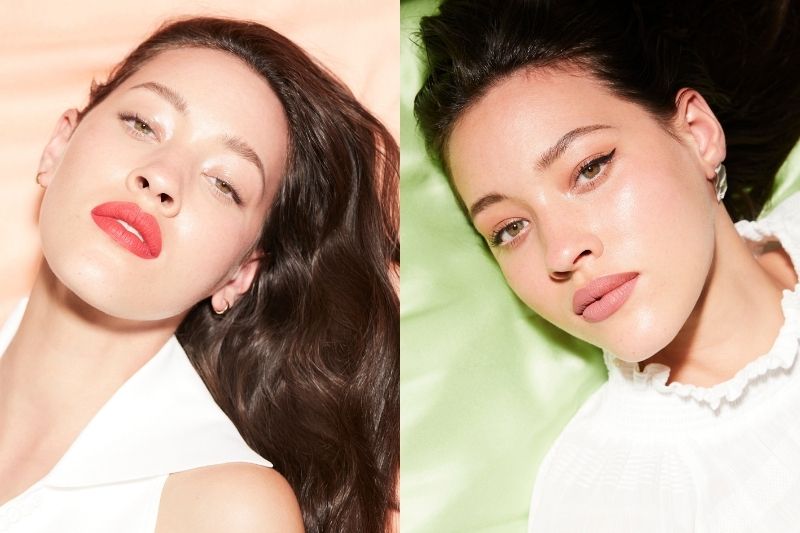
What are your tips for those looking to start a green business or ethical beauty brand, how can they get started?
There is a lot of competition on the market and one of the key factors of success is being first to market. If you can do something that’s really thinking outside the box and completely reimagine cosmetics or beauty, that is always going to be a benefit to the company.
Looking at becoming ethical and sustainable, the B Corp certification is the place to start. All you have to do is go to their website, register, and do a survey- which is pretty much a blueprint for creating a sustainable business. I thought Kester Black was a very sustainable brand and then I did [the B Corp certification] and saw we don’t know anything about sustainability. So that was the first step where we actually were guided into what kind of policies and documents you need as a business. Now we’ve actually gone back and redone our entire sustainability strategy.
How can we live beautifully but sustainably?
This is the whole reason that I started Kester Black. I don’t think it’s your responsibility to ensure that you’re doing sustainable things when buying cosmetics- that is a manufacturer’s responsibility, and it’s unfortunate that many other manufacturers don’t think that way. With Kester Black I just wanted to make it so that if you buy from us, you know that it’s one of the best products on the market, and we’re doing everything behind the scenes that we possibly can.
To make it easy for a consumer, look for the accreditations that a brand has because accreditations and certifications mean orders, transparency, and compliance. And they are the fastest way to ensure that a brand that you’re buying products from is walking the talk.
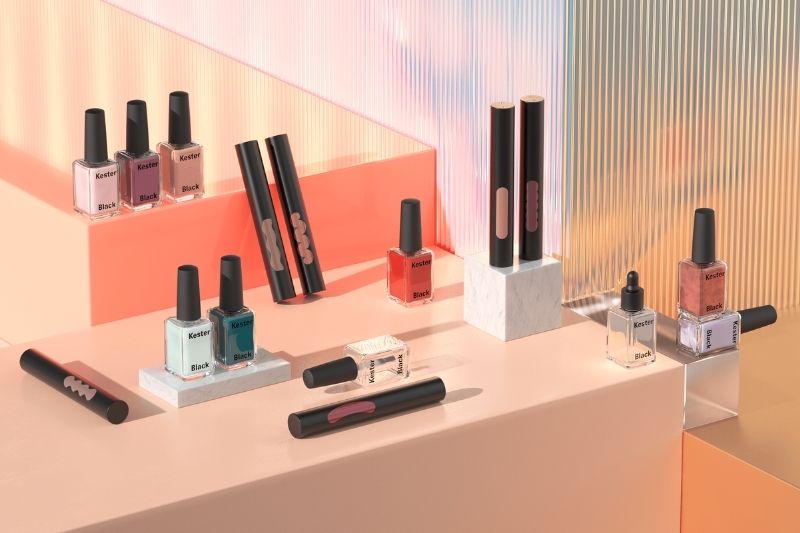
What is your advice for women leaders and how can they overcome gender barriers?
Lead by example, and be inspired. I went through the Telstra Business Women’s Awards and I actually won in 2016, which was amazing, but what I learnt from that experience was women need to learn to put themselves forward more. Often, when there’s a job opening in the corporate environment or an opportunity for a promotion, women will read the ten things that you need to know and will say, “oh only I only know nine of them” and not apply. But men will know one or two of the capabilities and still apply. So essentially, women actually don’t put themselves forward in the first place for promotional opportunities.
The Telstra Business Women’s Awards are full of incredible women who are leading by example, and teaching other women how to do that. Some of these ladies are multi-millionaires, and billionaires because they are smart, put themselves forward, and often created their own businesses. So I think that even looking up to some of those female leaders, see what they’ve done, and just replicate how they got in front of the media and went for awards. It’s amazing what credibility and exposure an award can give you.
What is the most satisfying part of running an ethical beauty brand?
We’ve been working on our sustainability strategy and that is really satisfying because I get to go and research how do we achieve supply chain transparency, what do the audits actually cover, and which suppliers are audited. A story came up recently in the media about child slave labour in mica mines. Mica is an ingredient that gives the subtle shimmer you have in highlighter as the main ingredient. But in these mines they have children working, and the answer to making sure that you don’t have child labour mica and your products, is to ensure that your manufacturers are buying from the right suppliers and have full supply chain visibility.
And what we’re trying to do with sustainability strategy, is we’re trying to write an accessible standard for every cosmetics company to be able to follow. We are creating documents and setting goals or guidelines that are really easy and useful for other brands.
And of course the most fun part is the product development, so getting to come up with ingredients and the packaging is really exciting. And packaging is not easy to get sustainable; what actually happens for packaging is that different parts are made of different materials and some parts will not be recyclable. Most cosmetic packages, especially in skincare, if there is a pump, which is usually about 15 different components, are all different materials. It is fascinating to work out the answer to unsustainable packaging solutions, and there is so much technology coming up lately. You can essentially make carbon negative packaging through cane plastic, which is a sugar cane resin which actually traps carbon, so that prevents it from becoming a Co2 emission, creating carbon-negative magnitude. Plastics that are home compostable is another big product, and also packaging from mushrooms.
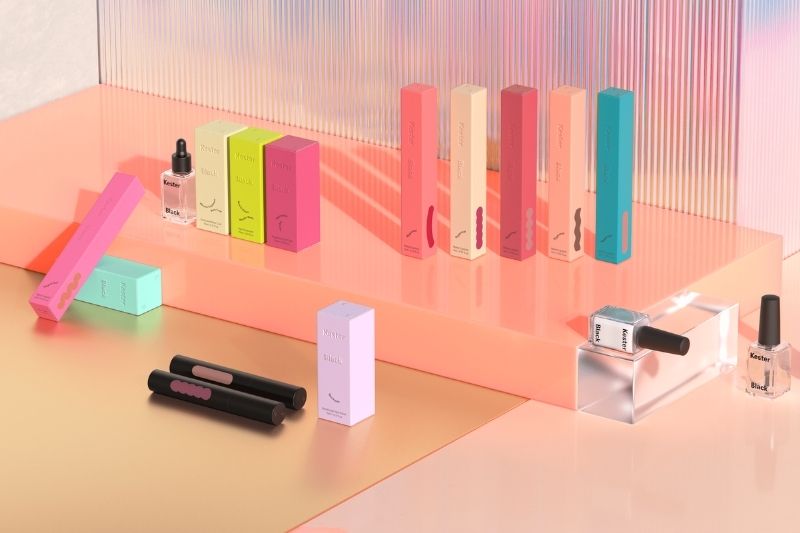
What is the product you always recommend people to try?
Our Miracle Treatment Base Coat. It’s a pearlescent clear coat which acts as a hardness so actually helps to harden and strengthen your nails to grow them longer. It’s our best-selling product after our top coat, and people actually really love it.
What is your favourite nail polish shade?
My favourite colour is Clean Gene, a really light green, but it changes all the time.
What beauty products do you always have with you?
I have three: an eye cream, and then a Vitamin B, and a Vitamin C- always those three, every day.
Congratulations on the company’s 7 year anniversary. Moving forward, what can we expect from Kester Black?
So we’re launching eyeliners and a multi-use products- essentially everything that you can think of, we’ve been working on.
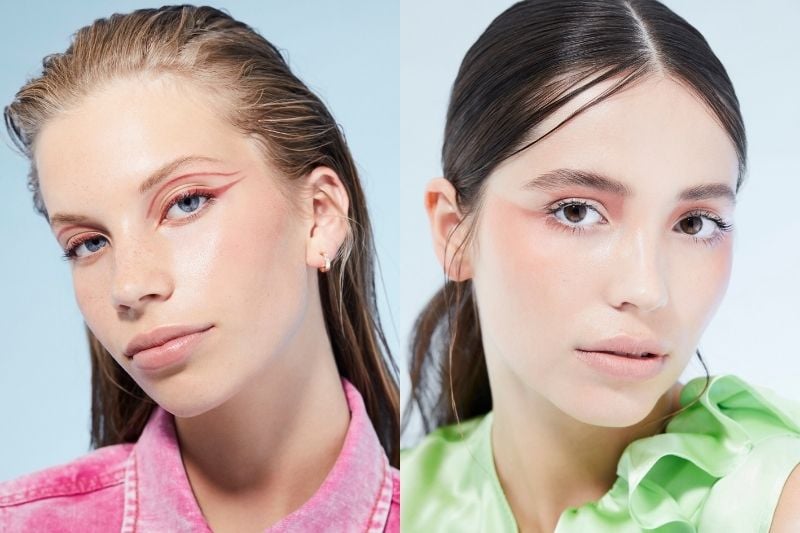
What sustainable beauty trends can we look out for in the future?
Clean and ethical are going to be the two biggest things. I think that what’s most exciting about the way the industry is moving is there will be a lot more natural and organic cosmeceutical skincare, stuff that works that’s still natural.
Kester Black is currently doing a capital raise, for more information about the brand and how to get involved, visit kesterblack.com.
Related Articles
Sustainable Beauty: 6 Trends to Look For in 2021
8 Sustainability Startups in Australia to Watch
The Woman Revitalising Australia’s Art Scene With Her All-Women Art Gallery
